Ford Otosan at the forefront of sustainable electric commercial vehicle production

Ford has articulated a core focus of its electrification in Europe in commercial vehicles. Ford Pro division products are based at the Kocaeli industrial complex, which produces 75% of Ford Pro models sold in Europe. Ford Otosan's Kocaeli facility comprises the Gölcük and Yeniköy plants, located within a unified area. The Gölcük plant is responsible for the production of the two-tonne Transit family, while the Yeniköy plant focuses on the production of the one-tonne Custom family of products.
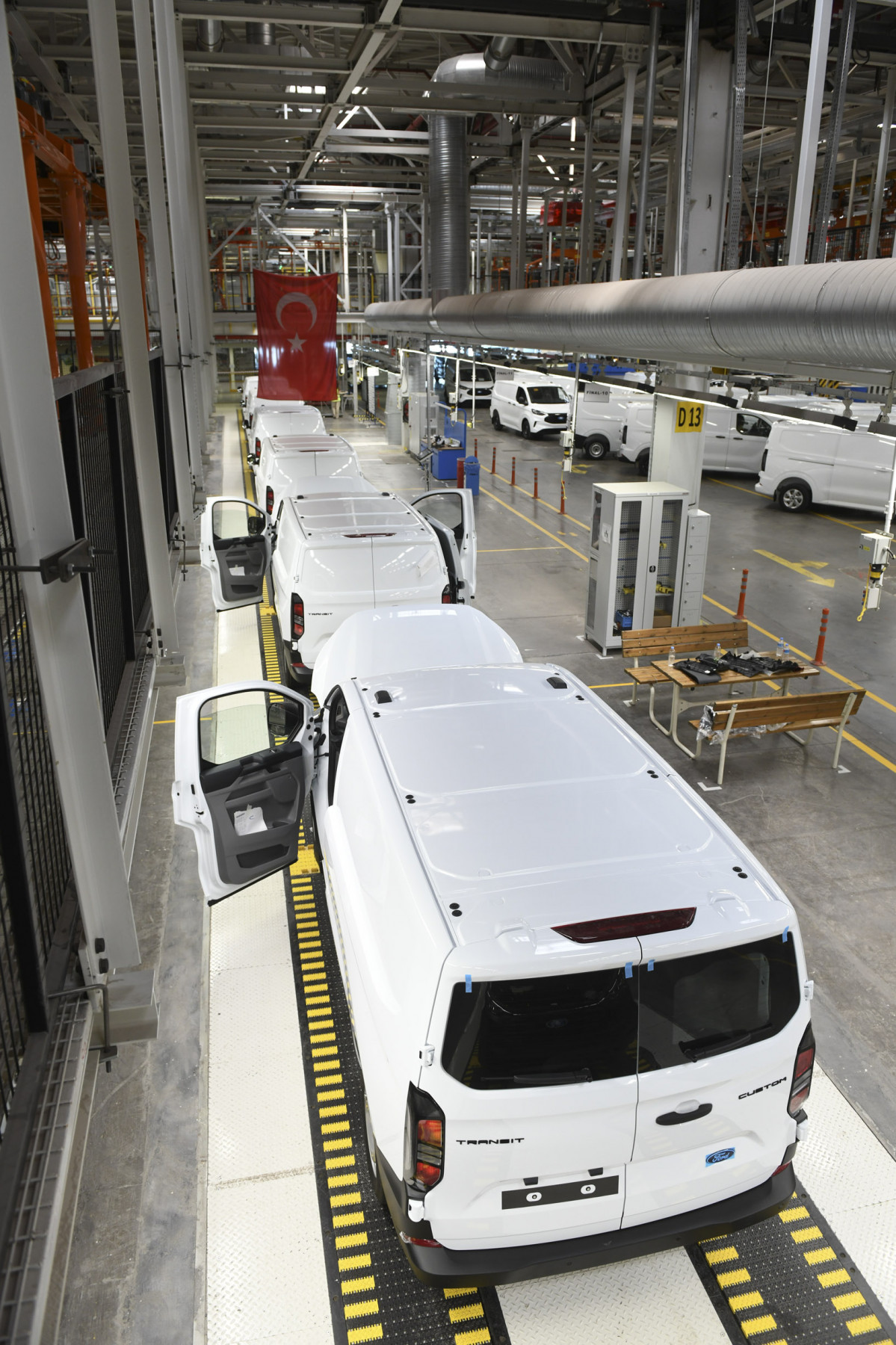
Ford Otosan's factories in Kocaeli extend over almost 1.7 million square metres, including the Yeniköy and Gölcük plants and the parking area and shipping port for finished vehicles. Güven Özyurt, managing director, Ford Otosan, said the complex "will reach capacity of more than 900,000 vehicles by 2025 at our four plants (Gölcük, Yeniköy y Eskişehir in Turkey, and Craiova in Romania) in two countries, including the Craiova plant in Romania. We have increased capacity at Kocaeli and installed a Battery Assembly line with a production capacity of 130,000 units, in line with our goal of becoming Turkey's first integrated electric vehicle production plant." Ford Otosan Kocaeli plants won the World Economic Forum's (WEF) Global Lighthouse Network award among all Ford plants worldwide and is the second vehicle plant to do so.
We have increased capacity at Kocaeli and installed a Battery Assembly line with a production capacity of 130,000 units, in line with our goal of becoming Turkey's first integrated electric vehicle production plant (Güven Özyurt, Ford Otosan)
With a workforce of 5,000 employees, 20% of whom are women, the Gölcük plant has a current capacity of 207,000 units. Its production flow is supported by a high level of digitalisation with Data Matrix, Mega Quality, Digital Factory, Advanced Production Planning, AGVs and intelligent maintenance programmes.
Sustainability and efficiency designed for the future
While the entire Kocaeli complex reflects advanced and sustainable production, the greatest degree of modernity and sophistication is undoubtedly found at the Yenikoy plant, which opened in 2014. From the last quarter of 2023, this factory, which will have a team of 6,600 people (27% of women) by 2025, produces a new generation of the Custom and will take on a one-tonne Volkswagen vehicle later this year. It will have a capacity of more than 400,000 units for vehicles of both brands.
The state-of-the-art factory combines sustainability and efficiency in the welding and assembly shops on several levels. The operations on the upper floor of the welding shop are fully automated. In this workshop, the upper floor layout accounts for 25% of the total floor space. With an 82% automation ratio, it integrates inline geometry measurement, material flow conveyed by AGVs and KUKA Pulse welding technology, among other technological advances.
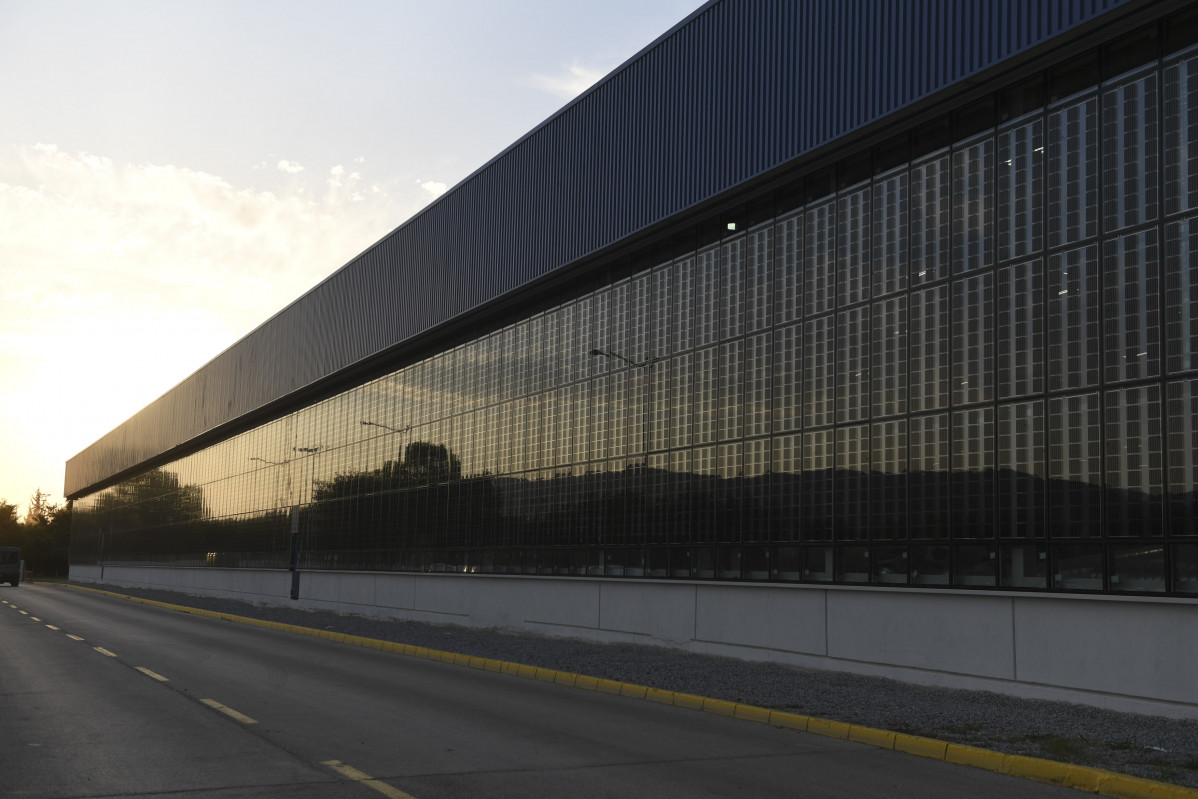
Sustainable applications such as photovoltaic glass walls, solar panels and tracking systems stand out. Other sustainability projects include daylight harvesting systems and the recovery of surplus or process water.
In terms of information management, a giant digital screen monitors the flow of data in real time. This screen makes it possible to visualise the entire data flow of the entire factory in a single interface, covering the production process, assembly, production lines and even Human Resources information. The paint plant, 89% automated, has an automatic paint quality inspection system for the exterior of the vehicles, as well as automatic dosing and sealing devices. It also has specific Industry 4.0 applications and traceability through QR codes.
The Ford Otosan Yeniköy plant is the first and only plant in Turkey that can produce both internal combustion and electric vehicles with 100 per cent transfer if required. Its production capacity will increase from 110,000 to 405,000 units.
"We focus on integrating robotic technologies into our production stations. The Yeniköy plant currently has more than 1,200 robots in its production areas, accounting for more than 82% automation in the body shop - Yeniköy is 'the plant of the future', taking Industry 4.0 applications and automation to a whole new level, operating with an end-to-end digital twin infrastructure. We have transformed the traditional focus on quality, flexibility and productivity to achieve a vision of the future," says Güven Özyurt.
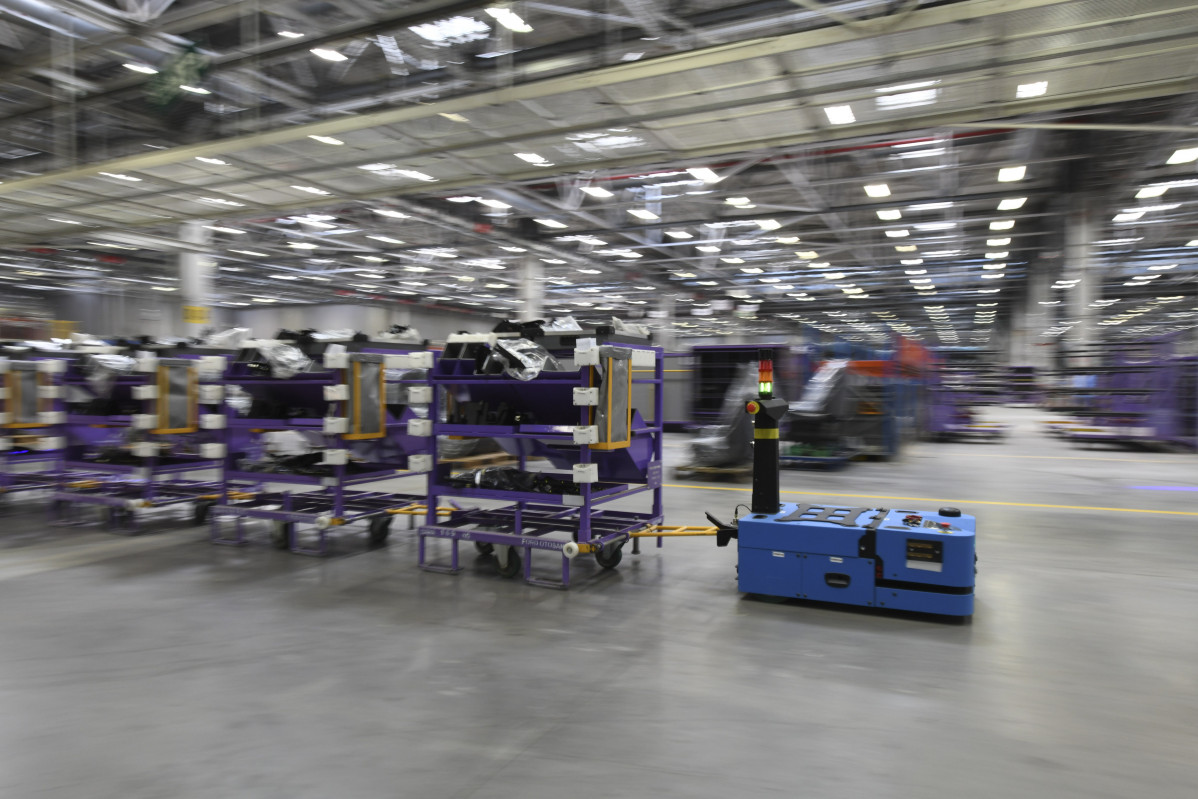
Other aspects that contribute to making Yeniköy an advanced centre are embodied in examples such as the 'silent factory' concept, using cordless and rechargeable drills instead of pneumatic pressing equipment for the first time on assembly lines. From an intralogistics point of view, thanks to AGVs, materials are transported to the edge of the line accurately and quickly. This approach not only speeds up material delivery, but also contributes to the overall automation of the plant. Materials and components arrive at the various plants via systems such as a lift, conveyor and automated handling system. These technologies are known to facilitate uninterrupted vertical movement, ensuring efficient material flow.
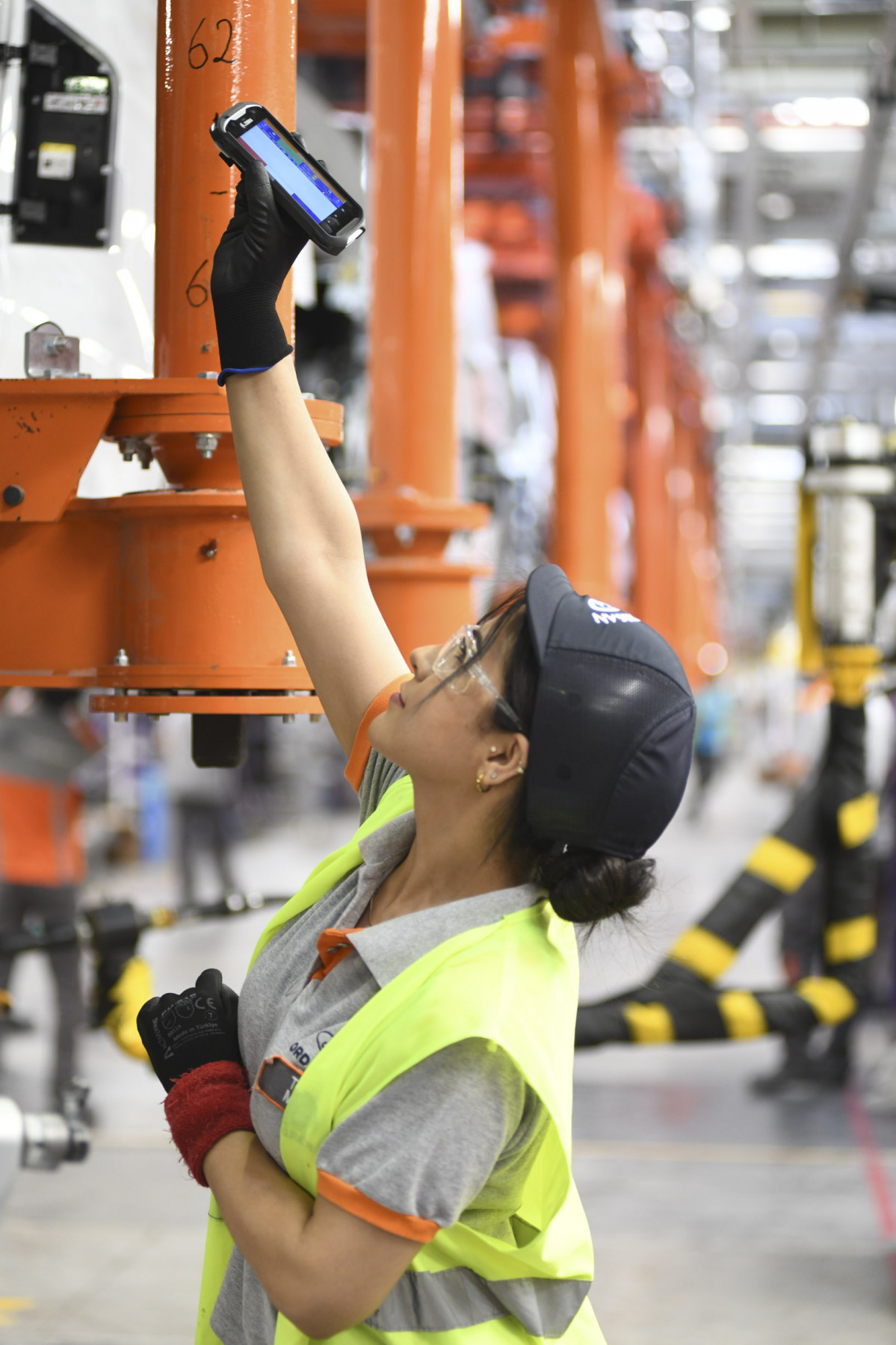
Extended range
Ford Pro's latest made-in-Turkey exponent is the extended-range version of the E-Transit, launched in April, which enhances the performance of Europe's best-selling large electric van. This latest addition - which will be available to customers worldwide - builds on the digital productivity enhancements of the Ford Pro Transit 2024, and significantly expands the E-Transit's potential customer base for the E-Transit, according to Ford.
The new model features an 89 kWh usable capacity battery for a maximum range of up to 402 km, as well as faster AC and DC recharging. Customers also benefit from extended maintenance intervals of two years/unlimited mileage, double the current interval of one year. Like all of the brand's commercial vehicles, this version is fully integrated with the Ford Pro platform of charging connectivity solutions and software that help customers optimise energy management, streamline maintenance and minimise downtime and cost-in-use.
"The range-extended version for the E-Transit is another example of Ford Pro's commitment to making high-productivity electric fleets a reality across Europe," said Hans Schep, general manager, Ford Pro, Europe. "Giving customers the option to drive longer distances between recharges, coupled with a wide choice of body styles and the support of Ford Pro's connected ecosystem, reinforces our position as their trusted partner for comprehensive fleet solutions."
The range-extended version for the E-Transit is another example of Ford Pro's commitment to making high-productivity electric fleets a reality across Europe (Hans Schep, Ford Pro)
The range-extended E-Transit is designed to appeal especially to customers operating in rural regions, colder climates or on routes that involve highway driving. The extended range option includes a steam-injected heat pump as standard to heat the cab more efficiently at low temperatures. The propulsion system will also complement the bodied vehicles with additional weight and auxiliary power requirements. Customers will be able to order the new model later this year, with first deliveries scheduled for 2025.
Ford's engineering team has significantly improved the E-Transit's charging performance on all extended-range models. Maximum AC charging capacity has been increased from 11 kW to 22 kW, meaning a full overnight charge will take less than six hours. DC fast-charging capacity has been increased from 115 kW to 180 kW, so a 10-minute charge can add up to 116 km of range, and a 10-80 per cent charge takes approximately 28 minutes.
Ford Pro's comprehensive solutions for depot, home and public charging include hardware installation and maintenance, as well as intelligent software to help customers manage charging for optimal efficiency and uptime. Fleet managers can easily track the charging performance and energy efficiency of each of their vehicles using Ford Pro Telematics software, as well as set charging windows to take advantage of the cheapest energy rates, lock chargers to prevent unauthorised use and pre-condition the E-Transit battery for maximum range.
Ford Pro expects the increased capability of the range-extended E-Transit to appeal to customers with a wide range of needs and requirements, so the company offers a wide choice of 19 variants, including L3 and L4 lengths, Van, Double Cab Van and Single Cab Chassis bodies, with maximum permissible masses ranging from 3,500kg to 4,250kg. Maximum payload is up to 1,460 kg for the Van variants and 1,814 kg for the Chassis Cab variants, with a towing capacity of up to 750 kg for models with a maximum permissible mass of 3,500 kg. In addition, the Pro Power Onboard system is also available to supply 2.3 kW of exportable power from the vehicle's battery, enabling the use of tools, equipment and conversions.
The new launch is equipped with 5G modem included as standard for ultra-fast on-the-go connectivity; wireless software update capability for multiple vehicle modules; the Advanced Vehicle Integration System for control of elements of the conversions via the SYNC 9 display; Alexa 10 personal artificial intelligence; and Delivery Assistant, designed to help save up to 20 seconds per stop, more than an hour a day.
New E-Transit minibus model
Ford Pro also enhances the E-Transit range with a new factory-electric minibus conversion. The new offering is designed to help customers such as taxi companies, schools and local authorities electrify their fleets and future-proof their operations in response to stringent regulations and the implementation of more than 350 low-emission zones already in place across Europe, including all EU capitals.
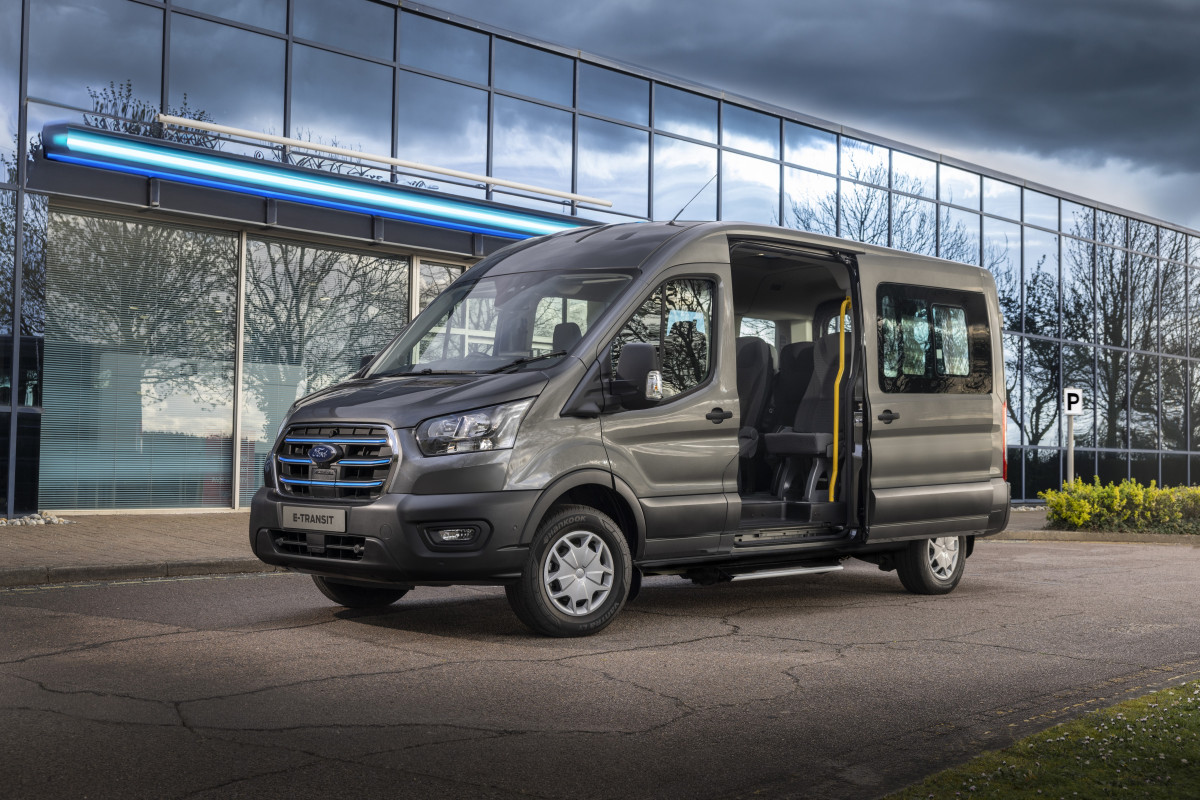
The new model seats up to 15 people and is based on a glazed E-Transit LRV variant with a maximum permissible mass of 4,250 kg, converted in Turkey by passenger car specialists ISRI. Customers can choose between a single or double front passenger seat, a nine- or twelve-seat rear layout, and standard or high roof options. Air conditioning, rear cabin heating and electric side step are standard.
Almost a century of history
Ford Otosan's automotive industry has been driven by the Koç family since 1928. With a production plant since 1960, its shareholding is divided equally between the Koç Group and Ford, with the remaining 18% owned by the Turkish state.
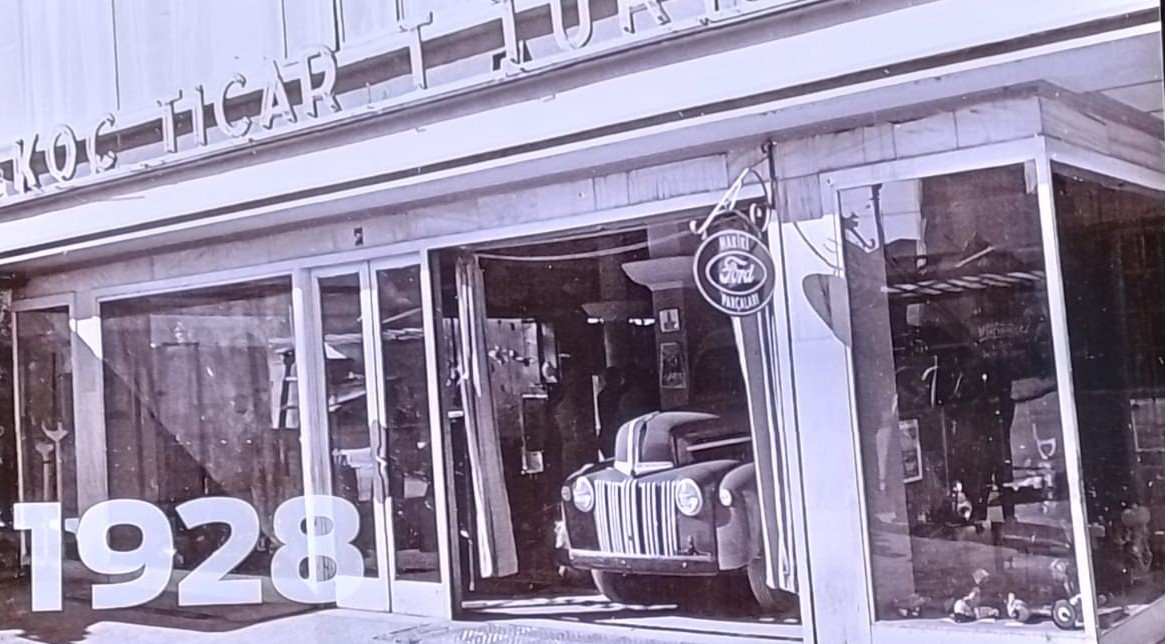
The company has been listed on the Istanbul Stock Exchange since 1986. With some 23,000 employees, in addition to the commercial vehicle business, it provides engineering services with one of the largest automotive R&D centres in Europe, a national sales company and a Ford Trucks Operations division.
Lea este artículo en castellano

El Clúster de Automoción y Movilidad de Aragón (CAAR) ha llegado a la mitad del año superando los 130 socios, en línea con la tendencia de crecimiento constante que ha mostrado desde su creación.

Ante el nuevo reto de los vehículos inteligentes y conectados de nuevas energías, SAIC Motor ha creado este conjunto de tecnologías originales, fundamentales y comunes, que sirve como base para todas las marcas del grupo, entre las que se encuentra MG.

La tercera generación del modelo se seguirá fabricando en la factoría de Sunderland (Reino Unido).

Toyota Motor Europe (TME) se ha asociado con la Fundación H2 Grand Prix (H2GP) para impulsar la educación STEAM (Ciencia, Tecnología, Ingeniería, Arte y Matemáticas) y promover la tecnología del hidrógeno entre los estudiantes.

Genesis Motor Europa ha anunciado que se adentrará en cuatro nuevos mercados europeos, marcando un nuevo capítulo en su expansión estratégica en la región y complementando su presencia actual en Alemania, Suiza y el Reino Unido.
